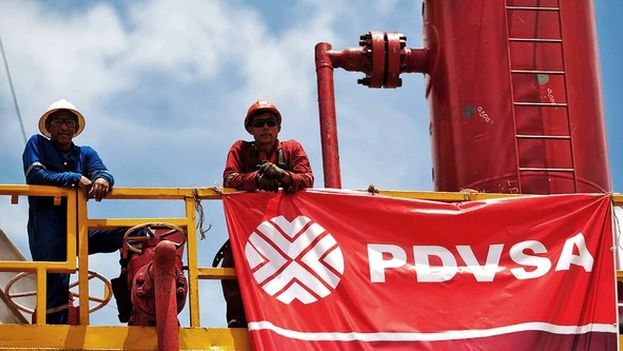
![]() 14ymedio, Havana, 15 May 2018 – Last year, Nicolás Maduro’s government spent almost 440 million dollars to purchase of foreign oil to send it to Cuba under conditions that are advantageous to the island, while representing a loss for Venezuela, according to an investigation carried out by Reuters, which has obtained documents about the matter.
14ymedio, Havana, 15 May 2018 – Last year, Nicolás Maduro’s government spent almost 440 million dollars to purchase of foreign oil to send it to Cuba under conditions that are advantageous to the island, while representing a loss for Venezuela, according to an investigation carried out by Reuters, which has obtained documents about the matter.
The shipments made by PDVSA, the state oil company, are the first documented confirmation that the South American nation is buying crude to supply its regional allies, especially the members of the Bolivarian Alliance for the Peoples of Our America (ALBA), because it is currently not extracting enough oil to support exports.
Venezuela delivered foreign oil at preferential discounts for these nations, even though the country is going through a liquidity crisis and has a critical need for foreign currency. The shipments were made in the midst of a serious social situation, due to the lack of food and medicines, together with galloping inflation, which exceeded 2,600% in 2017.
PDVSA went to the international market to compensate for a drop in its own oil production, unprecedented in the last 33 years. The country’s main industry has suffered a 28% drop in 12 months and its refineries are operating at a third of capacity. At the same time, there has been a massive resignation of workers due to low wages.
The Venezuelan state company paid a surcharge of up to $12 per barrel for the oil purchased in the international market that it then sent to Cuba, according to internal documents reviewed by Reuters detailing imports and exports from January 2017 to May of this year.
The oil that PDVSA acquired for Cuba came mainly from Russia and is of a type that is suitable for Cuban refineries, which operate mostly with machinery from era of Soviet involvement on the island.
Most likely, Havana pays for these supplies with services, in accordance with the agreement signed in 2000 by then presidents Hugo Chávez and Fidel Castro.
In accord with that agreement, the Cuban Government provides the Miraflores Palace with advice and support in areas such as public health, sports training and cultural and educational matters.
Previously, the Venezuelan government only imported oil to mix with its own crude before exporting it or using it to feed its refinery in Curaçao.
However, the documents analyzed by Reuters reveal that in the last 17 months the company bought crude at market prices to deliver to its allies, and that the shipments never even passed through Venezuela.
The subsidized deliveries indicate that Maduro is seeking to maintain diplomatic and political support from Cuba, a key ally at a time when many governments in Latin America are distancing themselves from Caracas and the United States has put in place numerous sanctions against Venezuelan government leaders.
“Maduro is giving away everything he can because the support of these countries, especially Cuba, is all the political support he has left,” said a senior Venezuelan government official who declined to be identified.
Expenditure on foreign oil contrasts with the fall in the amount of non-oil imports. The bill for purchases abroad fell from 46 billion dollars in 2011 to 6 billion in 2017, according to data from the Central Bank of Venezuela and Ecoanalítica, an economic research organization based in Caracas.
However, PDVSA did not pay in cash for the crude oil it bought from foreign companies, but promised to return it, later, in oil shipments. With this decision the Government of Nicolás Maduro has mortgaged the oil reserves of his country since they will serve to pay an increasingly large debt, which already totals more than 60 billion dollars owed to China and Russia alone.
____________________________
The 14ymedio team is committed to serious journalism that reflects the reality of deep Cuba. Thank you for joining us on this long road. We invite you to continue supporting us, but this time by becoming a member of 14ymedio. Together we can continue to transform journalism in Cuba.
